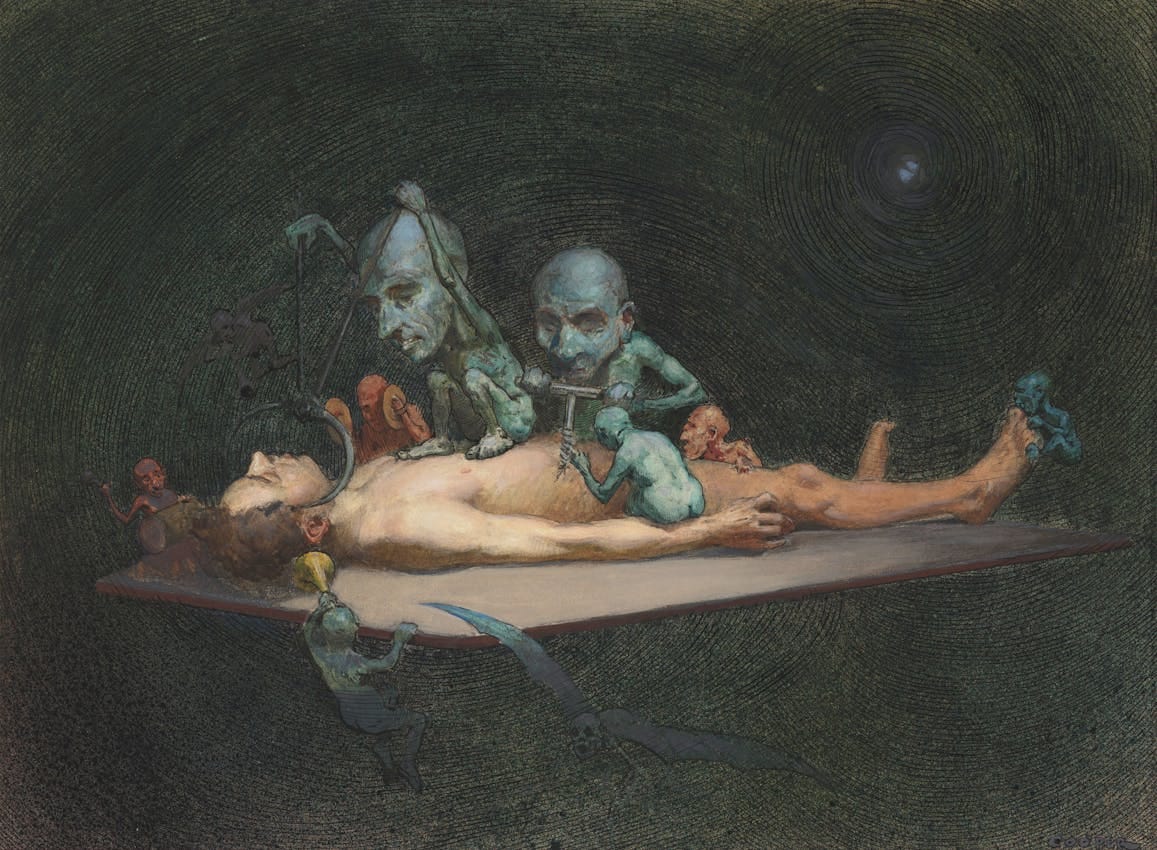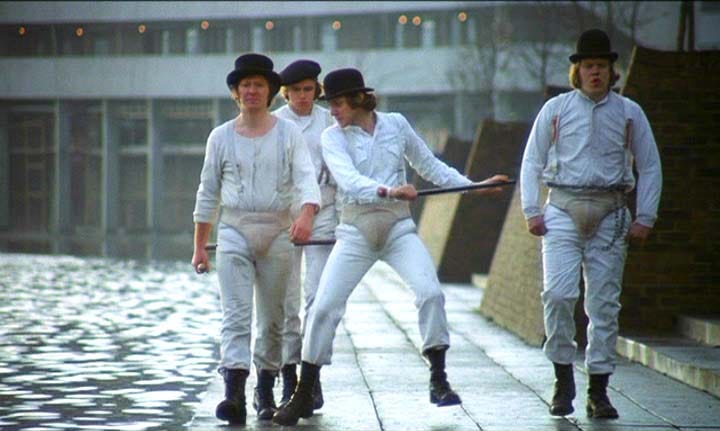I’ve been discussing with various people recently the idea that the next election—due to be called any second now! —is beginning to feel a bit like 1993. Back then, Labor, after a long run in government, were very much on the nose and all the gloss had worn off newish prime minister Paul Keating and people were itching to dump them and him.

But then, new Liberal leader, John Hewson, committed to a program called Fightback!, which included a 15% GST, and then there was something about icing on cakes, and soon, enough uncertainty and confusion about what Fightback! actually meant was generated so that, come election day, in the privacy of the voting booth, people held their noses and voted Labor anyway, the devil they knew, and against all expectations Labor got a fifth term and Keating hailed it as the “sweetest victory of all.”
Fightback! has since been written off as the longest suicide note in Australian political history.
As ever, the reality is more complex, but the point of the parallel, and why now feels a bit like then, is that this time, the suicide note is Peter Dutton.
Instead of calming nerves in tumultuous times, he is tying himself ever closer to Donald Trump, the cause of the tumult, and promising to undertake the sort of benefits-wrecking cuts to public services and public administration being undertaken by Elon Musk and his out-of-control team of droogs.
But even that is not quite right. Dutton—in a clumsy display of wanting to eat his cake and keep it—is sometimes aping Trump but other times repudiating him. DOGE? Bring it! Reform to the pharmaceutical benefits scheme or support for Ukraine? Well, we’ll just copy Labor.
The simple truth is that the LNP is nowhere near fit for office, and whatever you think of Labor’s shortcomings, they are at least competent.
The difference in 2025, of course, is that our elections are no longer a zero-sum game of the two-party system. The possibility of an actively sought-and-voted-for minority government presents as the most likely outcome.
After all these years, it is interesting to finally hear mainstream journalists openly recognising this and the reasons for it, but you can bet that if the mainstream has caught up with these facts, the facts have moved on. The issues now, for example, are less about whether we have a minority government, but about what form a normalised minority government will ultimately take. It is about the spark of the independents’ movement jumping from the relatively well-off suburbs to the city fringes and beyond.
Those are the stories now taking shape. Underneath the mainstream radar.
My point is not to predict any particular outcome but to underline the fact, that whatever the result of the next election, nothing is settled. This is not a sliding doors moment. The incremental change of the last thirty-odd years will continue. Two-party politics remains on the nose because the material basis of its support has disappeared, but the ability of independents to reliably win seats is still unsettled.
We are still trying to force a multi-candidate system into a two-party box.
In an election where Dutton is tainted by Trump, and where the threat of fascist America is casting a shadow across everything, it’s possible for the current parliament to be more or less replicated at the next election if a steady-as-she goes mentality asserts itself as it did in ‘93.1
In other words, no-one really wants a prime minister Dutton, so it is possible Labor holds onto most of its seats, while more independents get across the line. Maybe the Greens pick up Macnamara too.2
People are measuring uncertainty differently now, and why would you vote to retain a majority government—of either major party—when it is their legacy of unchallenged, centralised governance that has got us into the various messes we are in?
Stability—that catch cry of the status quo—lands differently now too. Stability might actually arise from taking power away from the people who have led us to where we are. From breaking a duopoly that has no new ideas for a new era.
I was struck a while ago by this speech to the Australian Fabians by Labor’s Andrew Leigh. It is an incredible insight into the factional system that rules internal Labor Party politics, and it’s an article everyone should be aware of if they want to understand how party power actually works.
Leigh is admirable in that he has tried to work within and without this system, a decision that has no doubt hampered his career path within Labor—he says as much in the speech. His argument is that the factional system has become sclerotic. There are fewer non-aligned members than ever, and there are now only two factions.
The net result, he explains at some length, is a concentration of power and a decision-making process that is closed off and inward looking.
He writes:
In 2023, it is worth asking whether a rigid factional duopoly — in which show-and-tell prevails and in which preselections are decided by the few rather than the many — is really in the long-term interests of the party. As a Tasmanian ALP member told the Bracks-Faulkner-Carr review of the party, ‘While we continue to allow the factional carve up of positions and decisions are taken on faction grounds, people will continue to be turned off.’
He isn’t opposed to factions per se, but he argues strongly that good governance and a genuine egalitarianism—where people aren’t simply ruled by elites making decisions in back rooms—requires the freedom for people to not join factions, to be independent, and for governance to therefore be more open to outside ideas.
“[T]oday’s factions are less likely to broker ideological debates than to try and find a way of avoiding the debate altogether,” he says.
Hello? Ring any bells?
He is talking about the Labor Party, of course, but it amounts to the most eloquent argument in favour of minority government you are likely to hear from a mainstream politician, and I think we should take his message to heart: the two-party system we have been stuck with these many years is doing just as much damage to the country as Leigh argues a two-faction system is doing to Labor.
And it doesn’t have to be this way.
Allowing for changes such as the removal of Higgins and North Sydney from the electoral map and the concomitant creations of new seats and boundaries.
Which didn’t seem possible as recently as a month ago.





Dutton really seems to be lurching from one crazy idea to the next, as if he is picking them up from some not-too-bright small business owners down at the club. Tax-deductible business lunches, banning WFH, breaking up evil insurance companies, Trumpist migration policies and there are probably more.
If he had said nothing at all, and counted on Labor losing he would probably still be ahead.
Why aren't Labor factions loose and informal? Sounds like you'd have limited agendas and get frozen out if you said the wrong thing.
The ALP could start with not requiring their parliamentarians to vote with the party on things they don't agree with. Fatima Payman may have stayed with the party and been a representative for wronged and displaced people as well as broadened the appeal of the ALP.
It's interesting that Andrew Leigh has spoken about factions where others haven't. Independents and party members are all individuals with various opinions. (I've never liked AL's belief that philanthropy should play a greater role in funding the needs of a society. I think that society as a whole, through taxes and other revenue, should provide the services that everyone or some people need. So I wasn't impressed that he let private/religious schools retain a status that would enable donors to claim tax rebates for the donations they made to those institutions.)